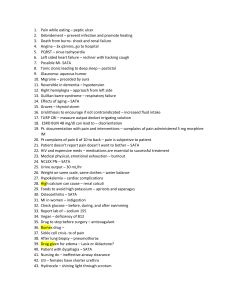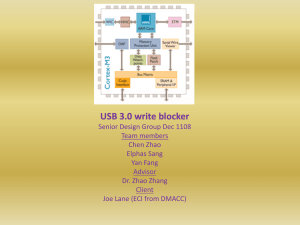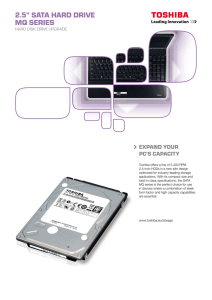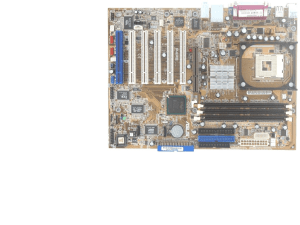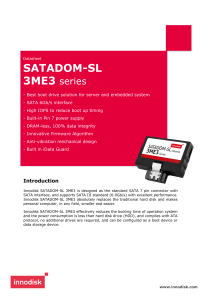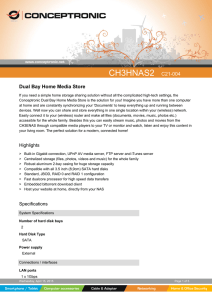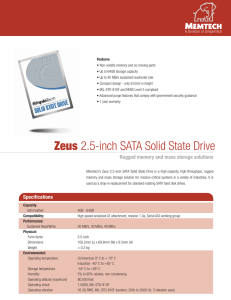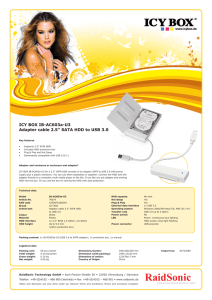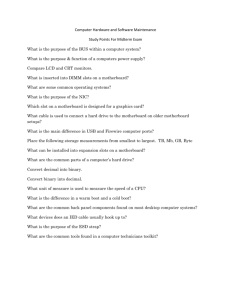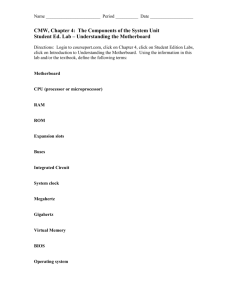File
advertisement
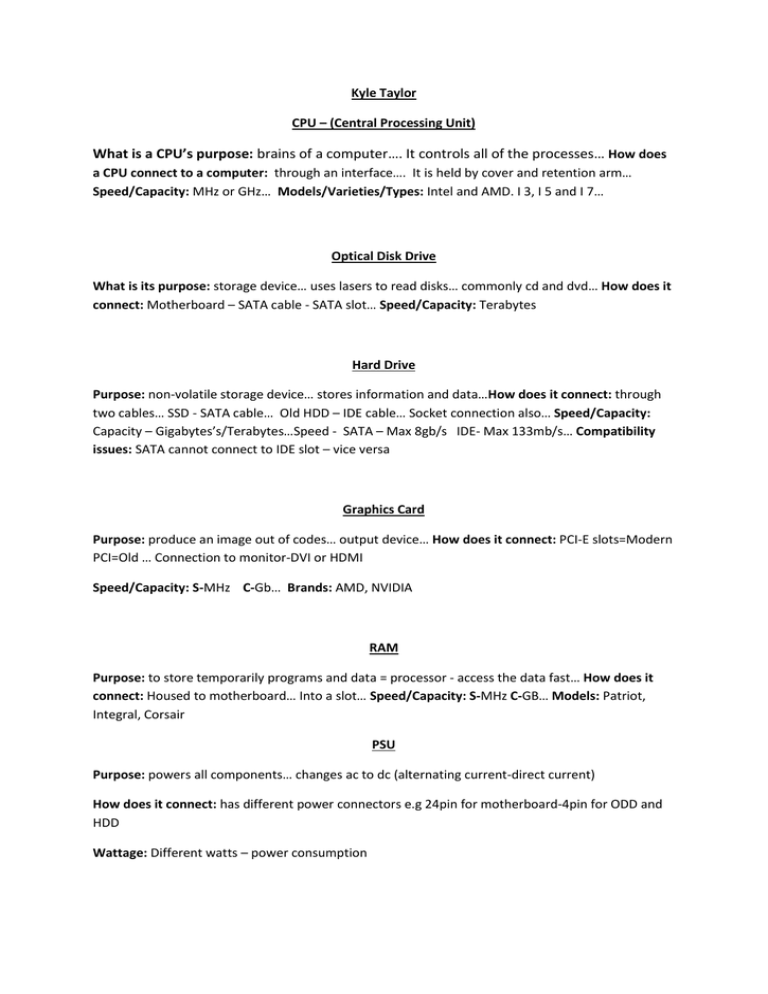
Kyle Taylor CPU – (Central Processing Unit) What is a CPU’s purpose: brains of a computer…. It controls all of the processes… How does a CPU connect to a computer: through an interface…. It is held by cover and retention arm… Speed/Capacity: MHz or GHz… Models/Varieties/Types: Intel and AMD. I 3, I 5 and I 7… Optical Disk Drive What is its purpose: storage device… uses lasers to read disks… commonly cd and dvd… How does it connect: Motherboard – SATA cable - SATA slot… Speed/Capacity: Terabytes Hard Drive Purpose: non-volatile storage device… stores information and data…How does it connect: through two cables… SSD - SATA cable… Old HDD – IDE cable… Socket connection also… Speed/Capacity: Capacity – Gigabytes’s/Terabytes…Speed - SATA – Max 8gb/s IDE- Max 133mb/s… Compatibility issues: SATA cannot connect to IDE slot – vice versa Graphics Card Purpose: produce an image out of codes… output device… How does it connect: PCI-E slots=Modern PCI=Old … Connection to monitor-DVI or HDMI Speed/Capacity: S-MHz C-Gb… Brands: AMD, NVIDIA RAM Purpose: to store temporarily programs and data = processor - access the data fast… How does it connect: Housed to motherboard… Into a slot… Speed/Capacity: S-MHz C-GB… Models: Patriot, Integral, Corsair PSU Purpose: powers all components… changes ac to dc (alternating current-direct current) How does it connect: has different power connectors e.g 24pin for motherboard-4pin for ODD and HDD Wattage: Different watts – power consumption Motherboard Purpose: Houses all crucial components… How does it connect: Powered by 24 pin connector… Has a port for all components… Brands: Gigabyte and ASUS… Certain chip sets Peripherals Input/Output… adds functionality… not needed to work USB from 1-2-3 DVI but now use HDMI-More clear peripheral interface…port or socket…connects device to computer…most use usb.. can get SATA and wireless Backing Storage USB…Flash card…External hard drive External hard drive – lot of storage space-cheap… can be bulky

